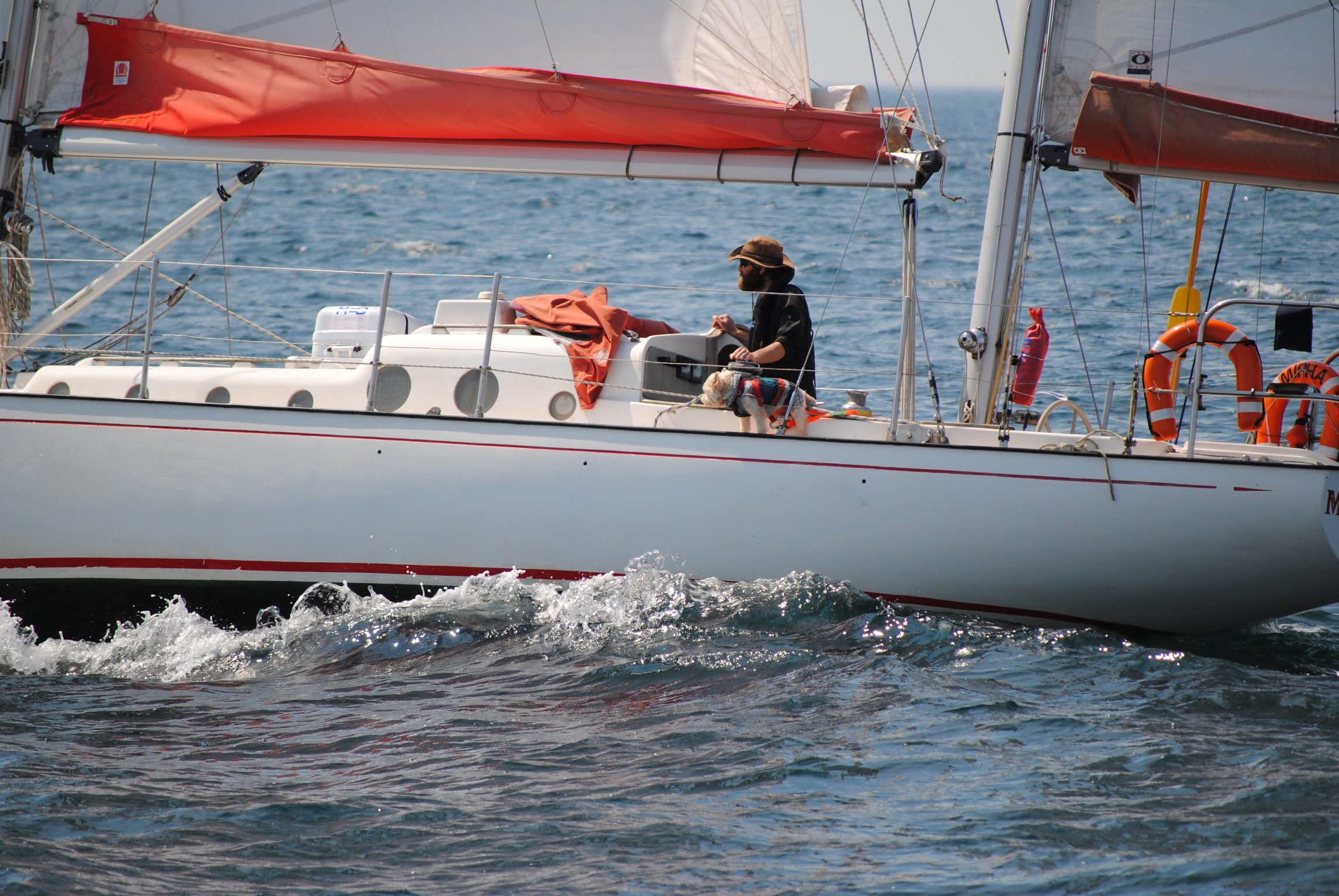
Nautical Origins of Everyday Phrases That Every RYA Day Skipper Should Know
You may or may not be an RYA Yachtmaster or a Skipper of a fine vessel on the sea, but I bet you talk like one.
The UK has a very rich nautical history. Surrounded by water, reliant on trade by the sea, and birthplace to many of the world’s greatest explorers and seafarers. It’s only natural that even our language is influenced by our maritime activities.
Below we have listed some of our favourite examples of how our nautical past has influenced the way we talk today. You may be surprised at what you find!
In the Doldrums

To be “In The Doldrums” is a phrase that is used to describe being depressed, dull or listless about something and dates back to the 1800s. The “Doldrums” also refers to the belt around the Earth near the equator. Because there is often little surface wind for ships’ sails to use in this geographic location, sailing ships got stuck in its windless waters. Over time, people equated the calmness of the “Doldrums” with being listless or depressed.
Taken Aback

When you are “taken aback” by something it means to be startled or surprised, and cannot respond at once. Over the years in sailing, sails of a ship have been described as “aback” when the wind blows them flat, or back, against their supporting structures, causing the ship to stop momentarily.
Long Shot
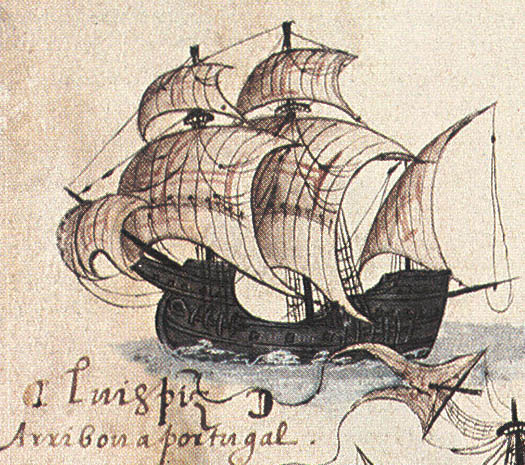
A “long shot” is an occurrence that would take a great deal of luck to get or solve. In the late 13th and early 14th centuries, early ships with cannons also known as “Carracks”, were not accurate at long distance, therefore if a shot from long distance did make impact, it was considered lucky and would be called a “long shot”. And so to make a “long shot” now means to be lucky or have luck when attempting something.
Feeling Blue

“Feeling Blue” is when you are experiencing feelings of sadness. The use of “blue” to mean “sad” dates back to the late 1300s. If the captain of a ship sadly passes away, the crew would fly blue flags and paint a blue band along the ship’s hull. This symbol is equated to grieving and sadness.
Pipe Down
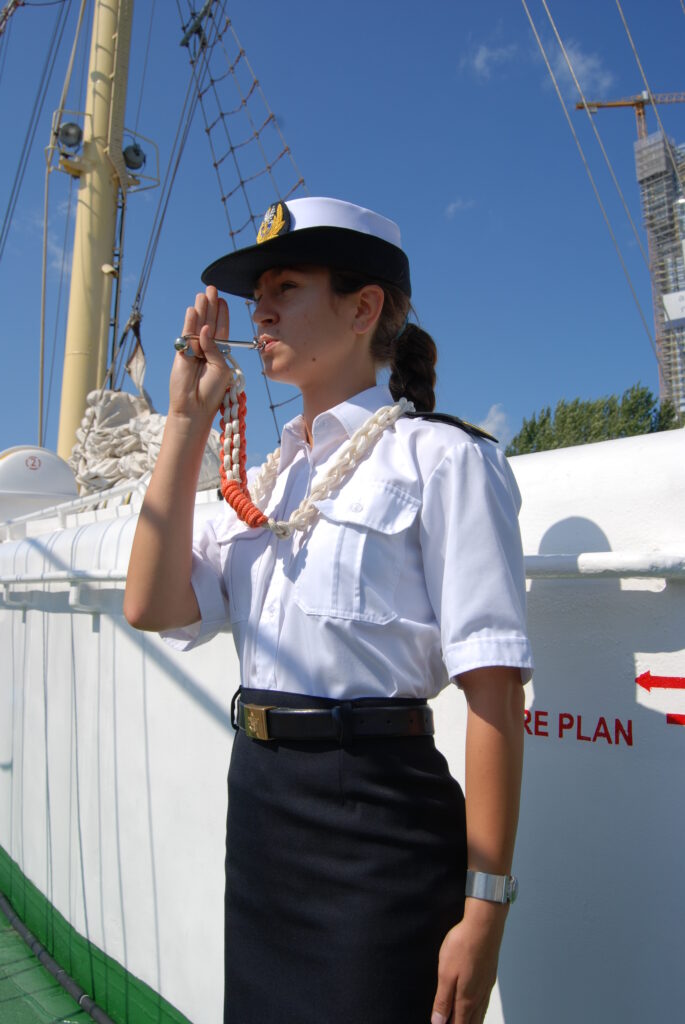
“Pipe down” is a request or command to be quiet. Ship crews received a wide range of signals from the boatswain’s pipe. One signal was “piping down the hammocks,” which meant the crew had to go below decks and prepare for sleep and also the sounding of this instrument is referred to “a crew would be piped” to a meal at dinner time. The boatswain’s pipe can also be used to dismiss a crew using the ‘pipe down’ command, and because it got much quieter after the dismissal, the command then became associated with quieting down.
Codswallop
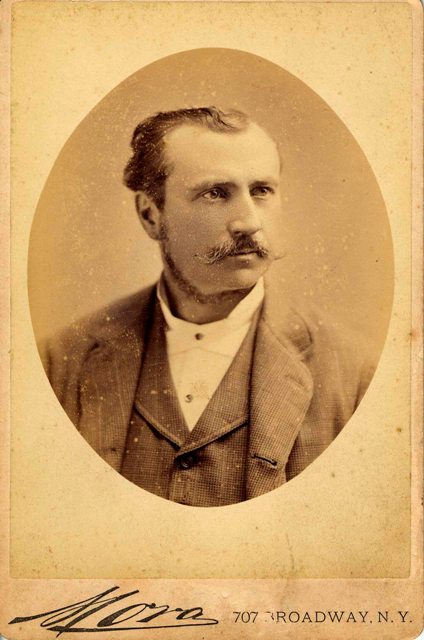
“What a load of old codswallop!” It’s a phrase you may have heard now and again but what on earth is ‘codswallop’? Of course, we use the word simply to mean nonsense but it appears to have nautical origin and originates from the age of sail, as so many of the colloquialisms in the English language do.
The story goes that sailors had to drink weak beer called ‘wallop’ rather than water whilst on long passages at sea because they had no way of keeping the water fresh.
However, when Mr Hiram Codd (pictured) invented a way to store carbonated water, it stayed potable for much longer meaning sailors no longer had to drink beer all day! This was great for the captains as their crew would be soberer, but the hardened drinkers were not impressed, and therefore anything else that was nonsense became ‘cod’s wallop’ too!
Cut and Run
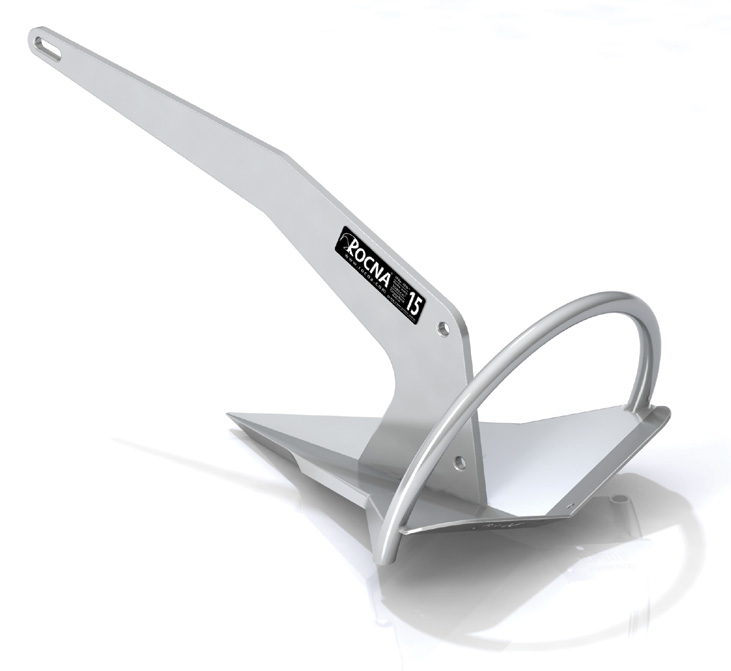
To cut and run means to leave quickly. But have you ever wondered why we say cut and run?
If I told you it was of nautical origin, you could probably guess.
It was originally used to describe a vessel that would cut its anchor rope, rather than lift the anchor off the seabed, in order to get away as quickly as possible. Running is also a term used to describe a ship sailing with the wind, a fast direction of travel, especially for an old ship with square sails.
By and Large
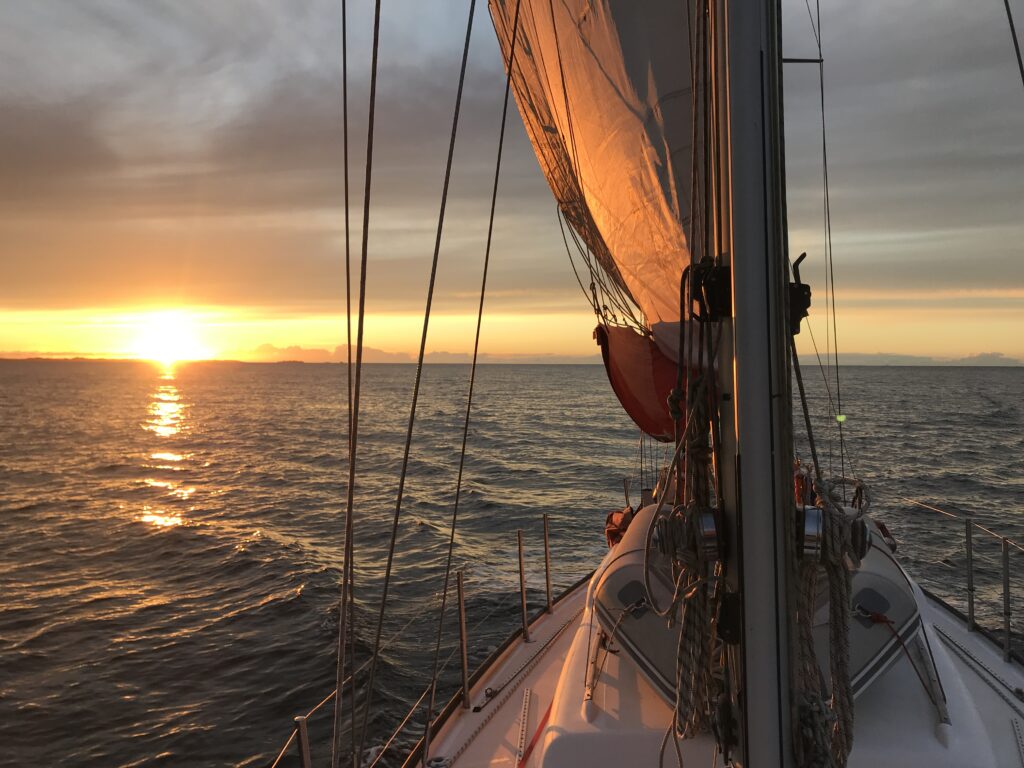
Have you ever used the phrase ‘by and large’? We use it as a synonym for ‘broadly speaking’ or ‘in general’, but have you ever wondered why?
Yes, you guessed it, it has a nautical origin!
To sail a vessel ‘by the wind’ is to sail towards the wind. Sailing ‘large’ refers to having the wind behind the vessel (which may necessitate getting the largest sails out).
A vessel which was said to sail well both by and large would be suitable in a broad range of conditions. It is this suggestion of a wide range which, over time, caused this phrase to become used to mean ‘in general’.
By and large, we find a bit of nautical etymology quite interesting.
Chock-a-Block

Have you ever described something as chock-a-block?
It’s used to describe something crammed so tightly together as to prevent movement or describes something being busy for example, “The dock was chock a block” meaning it was super busy!. But do you know its origin? Yes, you guessed it, it’s nautical!
A chock is a wooden wedge used to secure a moving object.
A block is a pulley used on boats to redirect a rope, or if multiple blocks are used, to increase mechanical advantage. When multiple blocks are used, we call it a tackle.
If you pull a rope too far through a tackle (containing multiple blocks), the blocks pull tight together and can no longer move.
So there you have it, chock-a-block!
The Cut of His/Hers Jib
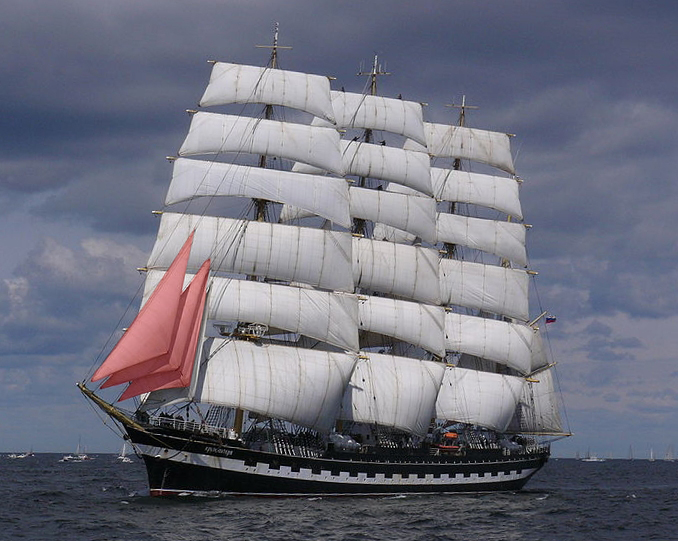
Ever heard the term “the cut of one’s jib”?
This nautical phrase is used to describe one’s appearance. The term was being used figuratively by the early 1800s, often to express like or dislike for someone.
A jib is a type of sail. In the 17th century, the shape of a jib sail could often be used to identify a vessel’s nationality long before their national flag could be seen. Therefore, one could instantly know the ship’s origin, and form an impression of it, by the “cut of its jib.”
Caught Between the Devil and the Deep Blue Sea

Have you ever heard the phrase ‘I am caught between the devil and the deep blue sea’?
The phrase means to be trapped/caught between significant difficulties. Many sources would have you believe this phrase has a nautical origin, but we did some digging and found a less certain history.
The nautical version is said to have its source in the historical nautical practice of sealing the seams between a ship’s wooden planks with hot tar. The ‘devil’ is the name given to one of the ship’s seams between the planks on the side of the hull which is usually the most prone to leaking.
The crew ‘between the devil and the deep blue sea’ would be the poor crew who has been tasked with leaning over the side of the boat to reseal this seam, quite literally putting him ‘between the devil and the deep blue sea’.
However, this phrase was used 150 years prior to the ‘devil’ seams first appearance, alongside other phrases such as ‘a precipice in front, wolves behind’, casting doubt on its nautical origin.
Ardent

‘Ardent’ means to be passionate or fervent.
Yes you guessed, it has nautical origin.
The word “Ardent” comes from the old days of sail where a ship that was ”Ardent” tended to seek the wind when the helm was left unattended. This was a desirable attribute for a sailing ship because the vessel would turn towards the wind and slow to a stop if nobody was in control!
As most of you know, we are called Ardent Training, this is because all of our courses and website work have been completed with passion as we are so keen to teach you everything we have learned over our years out at sea, therefore we are “Ardent!”
Bitter End
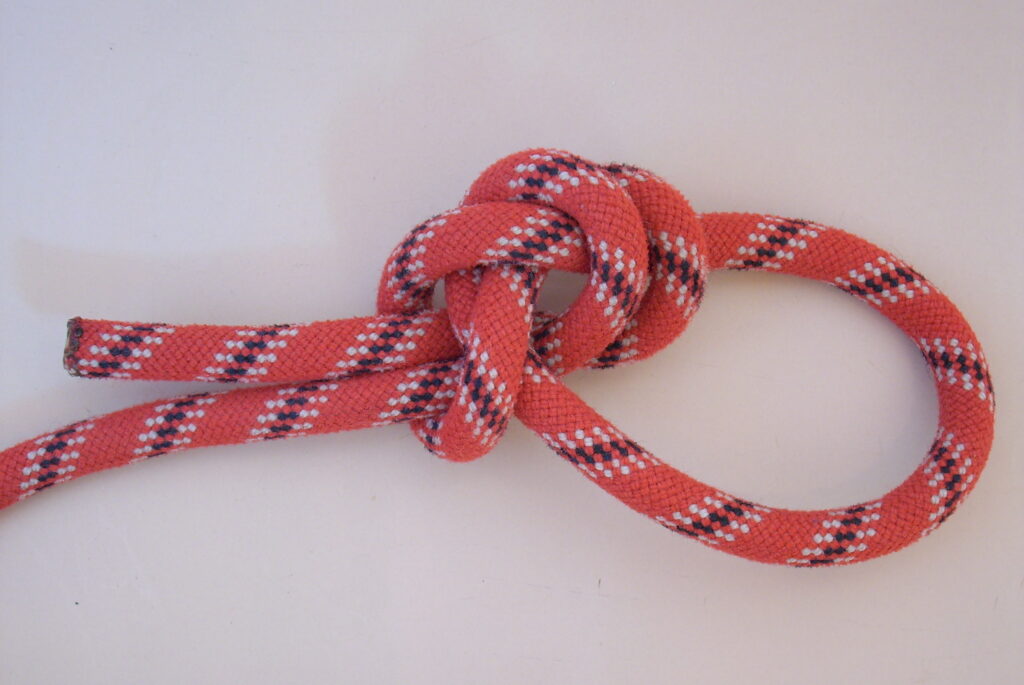
The English language is full of words and phrases with a nautical origin. For example, have you ever used the phrase: ‘to the bitter end’?
The bitts on a boat are something we use to tie a rope to, the bitter end of a rope is the very end of a rope.
When we anchor a boat, the longer the rope we use between the boat and the anchor, the better the anchor will hold. In a storm we need all the rope we can to give the anchor the best chance of holding our boat, therefore we will keep paying out the rope until we reach the bitter end of the rope. When we reach the bitter end we have clung on as long as possible and there is nothing left to do.
Posh

Did you know that the term ‘posh’ has nautical origins?
So the story supposedly starts with the Peninsular and Oriental Steam Navigation Company (P&O), which from 1842 to 1970 was the major steamship carrier of passengers and mail between England and India, via the Suez Canal and the Red Sea. Whilst heading south, the cabins on the port side got the morning sun after a cool night, while the starboard cabins got the afternoon sun during the hottest time of day and were still quite hot at bedtime. On the return trip, the opposite was true. The cooler cabins, therefore, were the more desirable and were reserved for the most important and richest travellers. Their tickets were stamped P.O.S.H. (Port Out, Starboard Home) in large violet letters to indicate these accommodations. This account of the origin of posh was used in advertising by P. & O. in the 1960s.
Up the Creek Without a Paddle

Have you heard of the phrase “Up the creek without a paddle?” it means to be in a challenging or troublesome situation, especially one that cannot be easily resolved.
In Portsmouth Harbour there is a naval hospital at the head of a creek. As ships arrived back into harbour, the sick and badly wounded would be rowed up the creek to the hospital. If you were going up the creek, you were either rowing the wounded, or you were the wounded being rowed.
So, if you are up the creek without a paddle, you must be in a bad way!
Sailing and yachting are among the most popular hobbies and sports out there, check our RYA Day Skipper Course out, if you are interested in getting a boating license or exploring more on your current sailing knowledge and take a look at our blog page more often to see more fascinating blogs like this.

